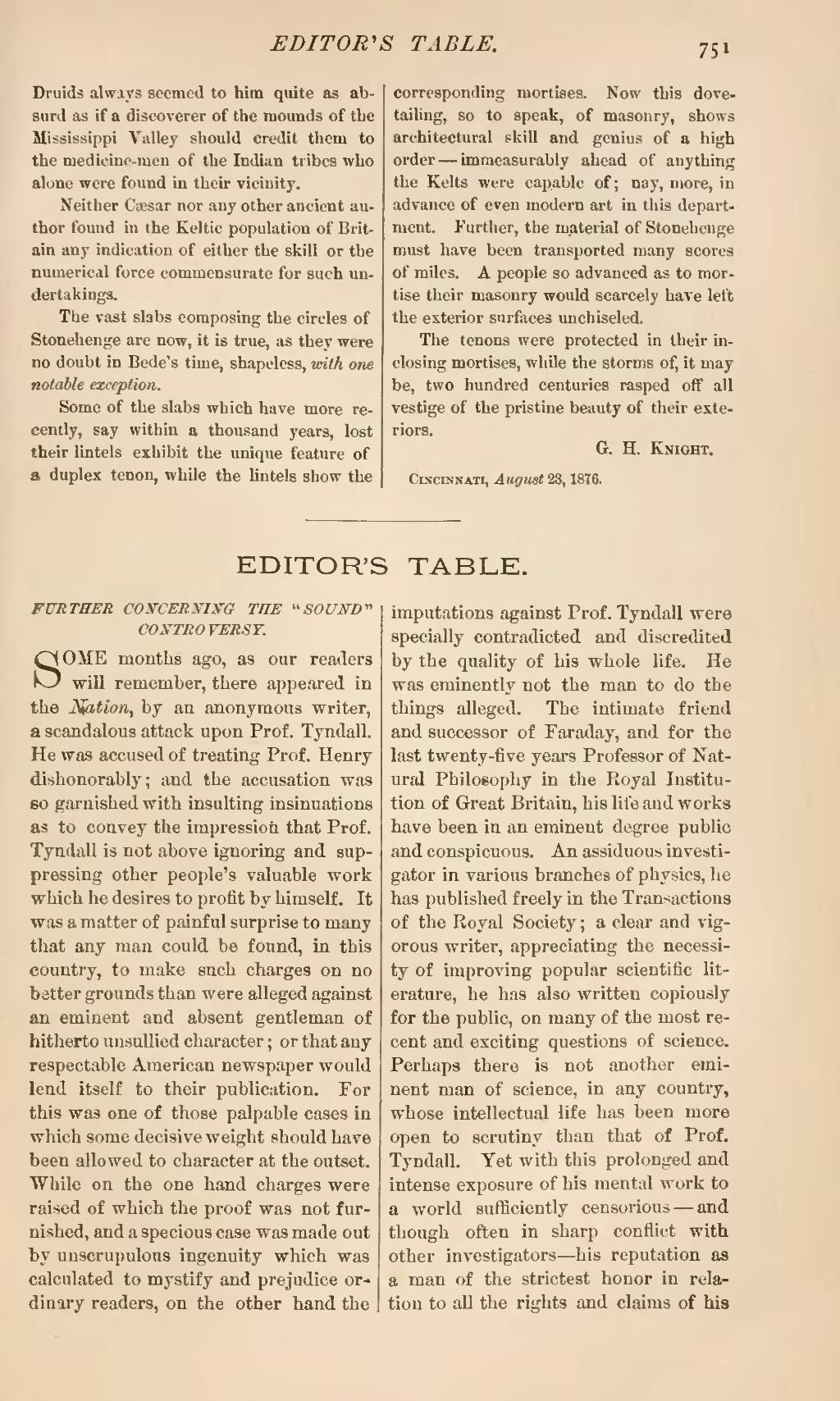Druids always seemed to him quite as absurd as if a discoverer of the mounds of the Mississippi Valley should credit them to the medicine-men of the Indian tribes who alone were found in their vicinity.
Neither Cæsar nor any other ancient author found in the Keltic population of Britain any indication of either the skill or the numerical force commensurate for such undertakings.
The vast slabs composing the circles of Stonehenge are now, it is true, as they were no doubt in Bede's time, shapeless, with one notable exception.
Some of the slabs which have more recently, say within a thousand years, lost their lintels exhibit the unique feature of a duplex tenon, while the lintels show the corresponding mortises. Now this dove-tailing, so to speak, of masonry, shows architectural skill and genius of a high order—immeasurably ahead of anything the Kelts were capable of; nay, more, in advance of even modern art in this department. Further, the material of Stonehenge must have been transported many scores of miles. A people so advanced as to mortise their masonry would scarcely have left the exterior surfaces unchiseled.
The tenons were protected in their inclosing mortises, while the storms of, it may be, two hundred centuries rasped off all vestige of the pristine beauty of their exteriors.
| G. H. Knight. |
| Cincinnati, August 23, 1876. |
FURTHER CONCERNING THE "SOUND" CONTROVERSY.
SOME months ago, as our readers will remember, there appeared in the Nation, by an anonymous writer, a scandalous attack upon Prof. Tyndall. He was accused of treating Prof. Henry dishonorably; and the accusation was so garnished with insulting insinuations as to convey the impression that Prof. Tyndall is not above ignoring and suppressing other people's valuable work which he desires to profit by himself. It was a matter of painful surprise to many that any man could be found, in this country, to make such charges on no better grounds than were alleged against an eminent and absent gentleman of hitherto unsullied character; or that any respectable American newspaper would lend itself to their publication. For this was one of those palpable cases in which some decisive weight should have been allowed to character at the outset. While on the one hand charges were raised of which the proof was not furnished, and a specious case was made out by unscrupulous ingenuity which was calculated to mystify and prejudice ordinary readers, on the other hand the imputations against Prof. Tyndall were specially contradicted and discredited by the quality of his whole life. He was eminently not the man to do the things alleged. The intimate friend and successor of Faraday, and for the last twenty-five years Professor of Natural Philosophy in the Royal Institution of Great Britain, his life and works have been in an eminent degree public and conspicuous. An assiduous investigator in various branches of physics, he has published freely in the Transactions of the Royal Society; a clear and vigorous writer, appreciating the necessity of improving popular scientific literature, he has also written copiously for the public, on many of the most recent and exciting questions of science. Perhaps there is not another eminent man of science, in any country, whose intellectual life has been more open to scrutiny than that of Prof. Tyndall. Yet with this prolonged and intense exposure of his mental work to a world sufficiently censorious—and though often in sharp conflict with other investigators—his reputation as a man of the strictest honor in relation to all the rights and claims of his

